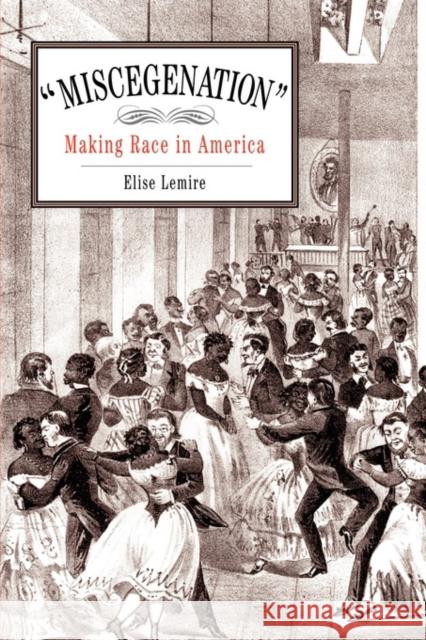"Miscegenation" : Making Race in America » książka
"Miscegenation" : Making Race in America
ISBN-13: 9780812236644 / Angielski / Twarda / 2002 / 216 str.
"Miscegenation" : Making Race in America
ISBN-13: 9780812236644 / Angielski / Twarda / 2002 / 216 str.
(netto: 233,23 VAT: 5%)
Najniższa cena z 30 dni: 241,40
ok. 30 dni roboczych.
Darmowa dostawa!
In the years between the Revolution and the Civil War, as the question of black political rights was debated more and more vociferously, descriptions and pictorial representations of whites coupling with blacks proliferated in the North. Novelists, short-story writers, poets, journalists, and political cartoonists imagined that political equality would be followed by widespread inter-racial sex and marriage. Legally possible yet socially unthinkable, this "amalgamation" of the races would manifest itself in the perverse union of "whites" with "blacks," the latter figured as ugly, animal-like, and foul-smelling. In "Miscegenation," Elise Lemire reads these literary and visual depictions for what they can tell us about the connection between the racialization of desire and the social construction of race.Previous studies of the prohibition of interracial sex and marriage in the U.S. have focused on either the slave South or the post-Reconstruction period. Looking instead to the North, and to such texts as the Federalist poetry about Thomas Jefferson and Sally Hemings, James Fenimore Cooper's "Last of the Mohicans," Edgar Allan Poe's "Murders in the Rue Morgue," and the 1863 pamphlet in which the word "miscegenation" was first used, Lemire examines the steps by which whiteness became a sexual category and same-race desire came to seem a biological imperative.











